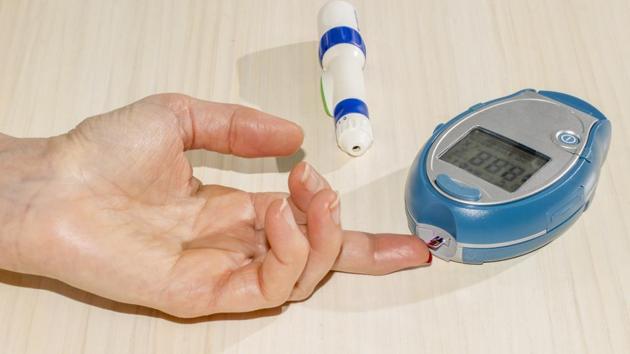Dec 08, 2024 02:30 PM IST
Diabetes and reproductive health: Blood sugar can impact fertility, ability to conceive in both the genders. Here’s how to navigate the risk for healthy journey
Diabetes is a chronic condition that affects various aspects of health, including reproductive health. Diabetes affects fertility in both genders through different mechanisms.
In an interview with HT Lifestyle, Dr Monica Kumbhat of Neuberg Diagnostics, shared, “In women, diabetes, especially Type 2, can lead to hormonal imbalances that impact ovulation and menstrual regularity, making conception more challenging. Insulin resistance associated with diabetes can increase androgen levels, which may disrupt reproductive hormones. In men, diabetes can lower testosterone, contribute to erectile dysfunction, and reduce sperm quality, impacting the chances of successful conception.”
Diabetes and female fertility
- Hormonal Imbalance and Menstrual Irregularities: Diabetes, particularly Type 1 and Type 2, can disrupt hormonal balance, which may cause irregular menstrual cycles or even missed periods. These irregularities result from the interaction between insulin and sex hormones, which can impact ovulation.
- Higher Risk of Polycystic Ovarian Syndrome (PCOS): Women with Type 2 diabetes are at an increased risk of developing PCOS, a condition marked by irregular ovulation, high androgen levels, and insulin resistance. PCOS is one of the leading causes of infertility, and because insulin resistance plays a role in both diabetes and PCOS, these conditions often overlap.
- Increased Risk of Miscarriage and Complications: Women with poorly controlled diabetes have a higher risk of miscarriage, preterm labor, and birth complications. Elevated blood glucose levels in early pregnancy can increase the risk of congenital anomalies in the fetus.
Diabetes and male fertility
- Reduced Testosterone and Erectile Dysfunction: Diabetes is associated with lower testosterone levels in men, which can lead to erectile dysfunction (ED). ED not only affects sexual health but also impairs the ability to conceive naturally. High blood sugar damages blood vessels and nerves, which can interfere with normal erectile function.
- Sperm Quality Issues: High blood glucose levels lead to oxidative stress, which can damage sperm DNA. This may impact the chances of successful fertilization and increase the risk of genetic anomalies in offspring.
- Retrograde Ejaculation: Neuropathy, or nerve damage caused by high blood glucose, can lead to retrograde ejaculation, where semen enters the bladder instead of exiting through the urethra. This condition can complicate natural conception. While it is not reversible, assisted reproductive techniques such as intrauterine insemination (IUI) or in vitro fertilization (IVF) can offer alternatives for men with this condition.

Managing diabetes during pregnancy
- Preconception Planning and Blood Sugar Control: Women with diabetes should aim for optimal blood glucose levels before conception to lower the risk of complications. The target HbA1c level should generally be below 6.5%, although this goal may vary depending on individual health conditions.
- Monitoring Blood Sugar and Adjusting Treatment: Pregnancy demands close monitoring of blood glucose levels, as insulin requirements often change. Gestational diabetes, a temporary form of diabetes during pregnancy, can affect women without pre-existing diabetes. Monitoring and adjusting insulin or medication as necessary helps minimize risks to both mother and baby.
- Specialised Care for Gestational Diabetes: Gestational diabetes generally appears in the second trimester and often resolves after delivery. However, women with gestational diabetes are at a higher risk of developing Type 2 diabetes later in life.

- Additional screenings, tests, or supplements you recommend specifically for diabetic patients to maximise their chances of a healthy pregnancy through IVF: In addition to standard prenatal vitamins, diabetic patients may benefit from supplements such as folic acid, omega-3 fatty acids, and antioxidants to support egg quality, fetal development, and overall metabolic health. Regular HbA1c testing, kidney and liver function tests, and, if needed, echocardiograms are helpful in ensuring stable health throughout pregnancy. Effective blood sugar management during pregnancy, a balanced diet, and regular physical activity can reduce the likelihood of complications, including high birth weight, which may necessitate a cesarean section.
Disclaimer: This article is for informational purposes only and not a substitute for professional medical advice. Always seek the advice of your doctor with any questions about a medical condition.
Catch every big hit,…
See more
Catch your daily dose of Fashion, Taylor Swift, Health, Festivals, Travel, Relationship, Recipe and all the other Latest Lifestyle News on Hindustan Times Website and APPs.


